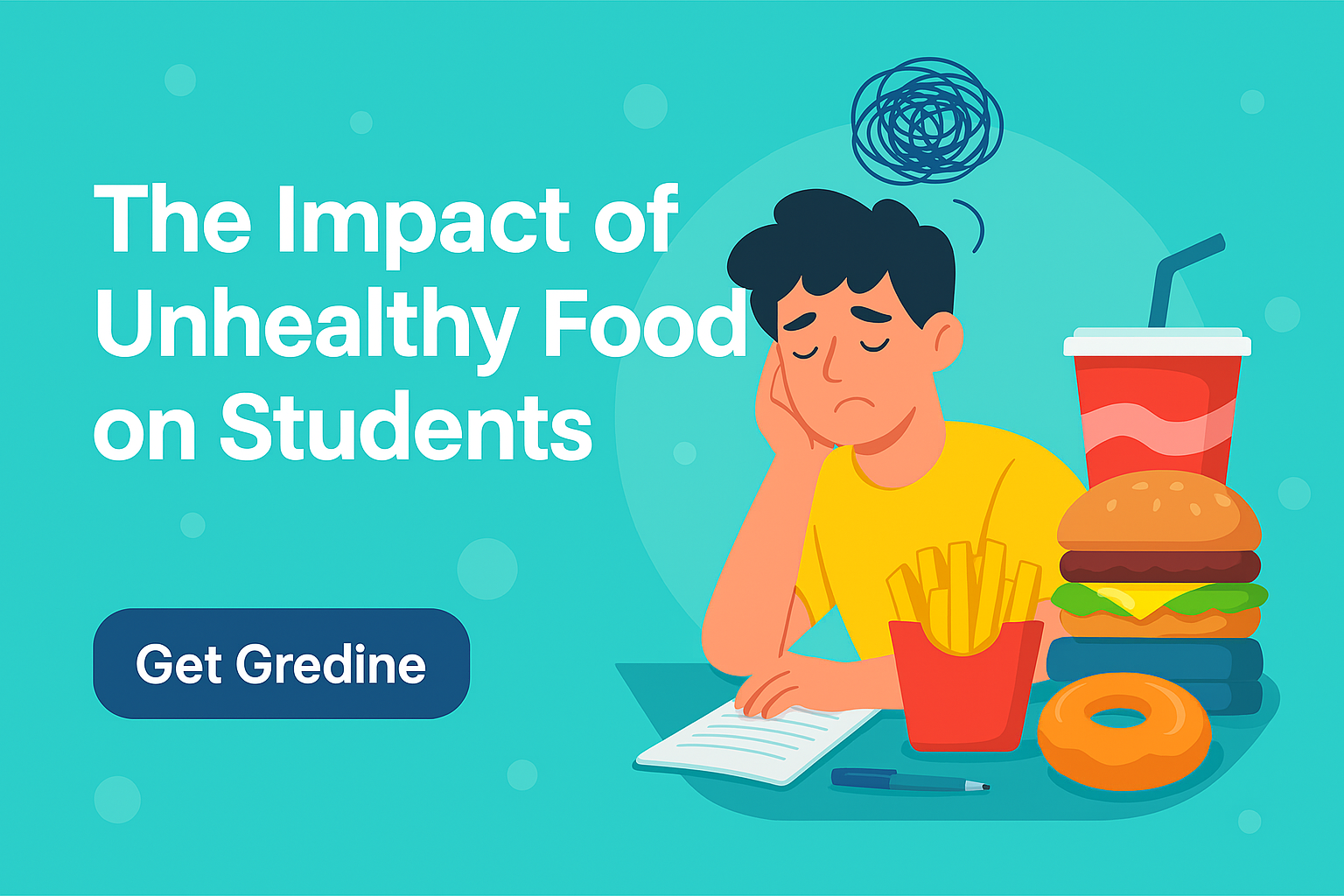
By Ravi On 25-03-2025 at 2:00 am
Introduction: The Rise of Unhealthy Food Habits Among School Students
In today’s fast-paced world, school canteens have become a major source of food for students. Unfortunately, many of these canteens serve unhealthy, processed, and deep-fried foods that are convenient but lack essential nutrients. The increasing consumption of such foods is leading to a rise in childhood obesity, sluggish metabolism, and other long-term health issues. While junk food might seem like a tasty and easy option, its effects on growing children are alarming and need urgent attention.
Effects of Junk Food on Students’ Health
1. Weight Gain and Increased Fat Levels
Most outside canteen food is high in trans fats, refined carbohydrates, and added sugars. Items like burgers, fries, chips, and sodas contribute to excessive calorie intake, leading to weight gain. According to a 2023 study by the World Obesity Federation, childhood obesity rates have nearly doubled in the last decade, with one in five school-aged children classified as overweight or obese. Since students often lead a sedentary lifestyle with limited physical activity, these extra calories get stored as fat, increasing their risk of obesity.
2. Slow Metabolism
Metabolism plays a crucial role in converting food into energy. Junk food lacks essential nutrients like protein, fiber, and healthy fats, which are necessary for maintaining a healthy metabolic rate. A report by the Centers for Disease Control and Prevention (CDC) states that students consuming high amounts of processed food experience a 15-20% decrease in metabolic efficiency, making it harder for their bodies to burn calories effectively.
3. Poor Digestion and Stomach Issues
Unhealthy food choices often lead to poor digestion, bloating, and constipation. Most canteen snacks are fried in unhealthy oils, making them difficult to digest. Additionally, the lack of fiber in these foods leads to digestive discomfort, causing stomach aches and irregular bowel movements in students.
Nutritional Impact: The Lack of Essential Nutrients
Most fast foods lack vitamins, minerals, and essential nutrients needed for a child's growth and development. Here’s how unhealthy food affects students:
Low Energy Levels – Junk food provides only a temporary energy boost, followed by an energy crash that leaves students feeling tired and less focused in class.
Lack of Concentration – High sugar intake causes fluctuations in blood sugar levels, leading to difficulty in concentrating and poor academic performance.
Weakened Immunity – A diet lacking in fresh fruits, vegetables, and proteins weakens the immune system, making students more prone to illnesses.
Long-Term Health Risks
Regular consumption of unhealthy canteen food can lead to severe health complications, including:
1. Obesity and Lifestyle Diseases
Childhood obesity has been on the rise due to excessive junk food intake. According to a 2022 UNICEF report, nearly 39 million children worldwide under the age of five were overweight or obese due to poor dietary choices. Obese children are more likely to develop type-2 diabetes, heart disease, and high cholesterol levels at an early age.
2. Hormonal Imbalance
Processed foods contain artificial additives and preservatives that can disrupt the body’s hormonal balance. This can lead to issues like early puberty, acne, and mood swings in teenagers.
3. Increased Risk of Diabetes
Sugary drinks and processed snacks cause insulin resistance, increasing the risk of developing diabetes later in life. The World Health Organization (WHO) estimates that childhood diabetes cases have increased by 25% in the last five years due to poor dietary habits.
Possible Solutions: How to Promote Healthy Eating Habits?
To combat the rising health concerns, it is essential for students, parents, and schools to work together and encourage healthier eating habits. Here’s how:
For Students:
✅ Choose fruits, nuts, and yogurt instead of chips and sugary snacks. ✅ Carry a home-packed lunch with whole grains, lean protein, and vegetables. ✅ Stay hydrated with water or fresh juices instead of carbonated drinks. ✅ Limit junk food to occasional treats rather than daily consumption.
For Parents:
✅ Educate children about healthy food choices and the impact of junk food. ✅ Prepare nutrient-rich homemade meals to reduce the temptation of outside food. ✅ Encourage kids to participate in sports and physical activities.
For Schools:
✅ Revise the canteen menu to include healthier options like salads, fresh sandwiches, and fruit bowls. ✅ Organize nutrition awareness programs to educate students on the importance of a balanced diet. ✅ Implement strict guidelines on junk food sales within school premises.
Time to Make a Change!
The health of school-going students should be a top priority for parents, schools, and society as a whole. Reducing access to unhealthy canteen food and promoting nutritious alternatives can help children lead a healthier and more active lifestyle. Schools should take responsibility for providing balanced meal options, and students must be aware of their food choices.
What Do You Think?
Do you believe school canteens should have stricter regulations on unhealthy food? What healthy alternatives would you like to see in school canteens? Share your thoughts in the comments below!
Author
Ravi
